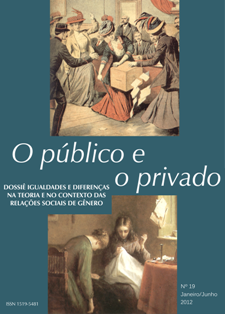Afastamentos por transtornos mentais entre professores da rede pública do Estado do Ceará
Palavras-chave:
Professores, Afastamentos por doenças, Transtornos mentais, Absenteísmo, Condições de TrabalhoResumo
Os afastamentos do trabalho por episódios de doença entre os servidores públicos tem sido uma preocupação crescente dos governos, principalmente os ocasionados por doenças mentais. Este estudo focaliza os afastamentos desse tipo entre os professores da rede pública do Estado do Ceará, buscando conhecer os fatores e as percepções dos professores quanto ao seu afastamento. O método consistiu de análise documental dos dados de afastamentos ocorridos no período compreendido entre janeiro e março de 2009, fornecidos pelo Sistema de Informação da Coordenadoria de Perícia Médica do Ceará e de entrevistas semi-estruturadas com 35 professores afastados por transtornos mentais durante o período de janeiro a maio de 2009. Os dados mostraram uma alta porcentagem de afastamentos por transtornos mentais no período (30,1%) entre todos os servidores, sendo que a maior parte classificados no grupo F da CID10 com diagnósticos de depressão (F32) e distúrbios ansiosos (F41). Os que mais se afastaram por esse tipo de doença foram os professores que citaram como principais motivos dos afastamentos a violência nas escolas e conflitos com os alunos. Discute-se as condições de trabalho da Secretaria de Educação e a necessidade de intervenções nessas condições a fim de apoiar mais efetivamente os professores afastados e promover melhorias nas condições de trabalho das escolas.











